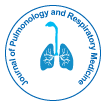Наша группа организует более 3000 глобальных конференций Ежегодные мероприятия в США, Европе и США. Азия при поддержке еще 1000 научных обществ и публикует более 700 Открытого доступа Журналы, в которых представлены более 50 000 выдающихся деятелей, авторитетных учёных, входящих в редколлегии.
Журналы открытого доступа набирают больше читателей и цитируемости
700 журналов и 15 000 000 читателей Каждый журнал получает более 25 000 читателей
Индексировано в
- ICMJE
Полезные ссылки
Журналы открытого доступа
Поделиться этой страницей
Абстрактный
The Importance of Vaccines for Respiratory Health
Anang Endaryanto
Vaccines have been used for centuries to prevent infectious diseases and improve public health. One of the most significant benefits of vaccines is the prevention of respiratory diseases, which can cause serious illness and even death. In this article, we will discuss the importance of vaccines for respiratory health and how they work to protect us from respiratory illnesses. Respiratory illnesses are infections that affect the respiratory system, which includes the lungs, airways, and other structures involved in breathing. Respiratory diseases can be caused by bacteria, viruses, or other pathogens and can range from mild illnesses like the common cold to severe illnesses like pneumonia.
Vaccines work by stimulating the body's immune system to recognize and fight specific pathogens. When a vaccine is administered, it contains a small amount of a weakened or inactive form of the pathogen. The body's immune system then recognizes the pathogen and produces an immune response, which includes the production of antibodies that can recognize and fight the pathogen. The immune response generated by vaccines is similar to the response that occurs when the body is naturally exposed to a pathogen. However, vaccines are much safer than natural exposure because they contain only a small amount of the pathogen and cannot cause serious illness. There are several vaccines available that protect against respiratory illnesses. Some of the most common vaccines include the influenza vaccine, the pneumococcal vaccine, and the pertussis vaccine.
Журналы по темам
- Биохимия
- Ветеринары
- Генетика и молекулярная биология
- Геология и науки о Земле
- Еда и питание
- Иммунология и микробиология
- Инженерное дело
- Клинические науки
- Материаловедение
- медицинские науки
- Науки об окружающей среде
- Общая наука
- Сельское хозяйство и аквакультура
- Социальные и политические науки
- Уход и здравоохранение
- Фармацевтические науки
- Физика
- Химия

 English
English  Spanish
Spanish  Chinese
Chinese  German
German  French
French  Japanese
Japanese  Portuguese
Portuguese  Hindi
Hindi